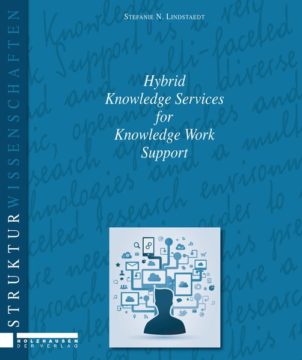According to Peter Drucker, one of the major challenges of the 21st century is to increase the productivity of knowledge workers the way the productivity of industrial workers was increased in the 19th century. However, the dynamics and discretionary nature of knowledge work has made the design of useful and usable support mechanisms extremely difficult. We argue that in order to support knowledge work effectively, its inherent learning dimension must be taken into account. In this work, we define work-integrated learning (WIL) as work processes with learning as a by-product. We understand WIL as a work-embedded process in which (new) knowledge is acquired, created, applied, and transferred through the interactions between knowledge workers, knowledge artifacts, and knowledge structures. In practice, these knowledge entities and especially their relationships are rarely available explicitly. Our approach to supporting WIL is to design knowledge services for discovering mutual relationships between these knowledge entities and enhance them with new knowledge. Specifically, our hybrid approach fortifies coarse-grained semantic models with a battery of soft computing methods (such as machine learning), improved over time through usage data and user feedback (collective intelligence).
- Veröffentlicht am Montag 26. Mai 2014 von Holzhausen Verlag
- ISBN: 9783902976178
- 196 Seiten
- Genre: Natur, Sachbücher, Technik
